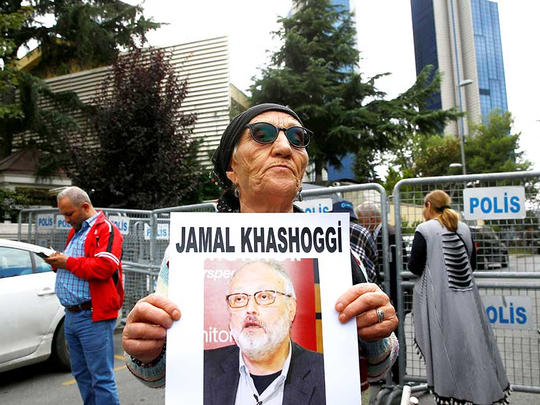
Dubai: One week after the disappearance of Saudi journalist Jamal Khashoggi, his whereabouts remain a mystery while conflicting reports reflect the intensifying war of narratives. On October 2, Khashoggi walked into the Saudi general consulate in Istanbul. His Turkish fiancee Hatice (Khadija) said he never came out of the building, which made her call friends to ask for help.
Media gradually took up her story, turning it into an international issue that would gradually involve journalists, diplomats, governments and heads of states.
Saudi Arabia said Khashoggi walked into the consulate, but insisted he left the premises. Faced with questions from several quarters, officials said they too wanted to know the fate of the Saudi citizen and would launch an investigation.
Turkish President Recep Tayyip Erdogan said he was following the case closely and would tell the world any news that comes out. He tried to rein in rushed conclusions and announced that Turkey would await the results of the prosecutor’s investigation before going into more details.
However, some media in the West and in some Arab countries did not wish to wait until the end of the Turkish investigation and reported that Khashoggi had been “brutally tortured, killed and cut into pieces inside the consulate”. Supporters of Saudi Arabia decried these baseless allegations, arguing the information in the anti-Saudi media stations could not be trusted since it was based on unidentified sources.
They doubted the reports and expressed shock that international media could be easily manipulated into picking up uncertain accounts. They also insisted that the dramatic allegations had been concocted by supporters of the Muslim Brotherhood and opponents of Saudi Arabia.
As the fate of Khashoggi is still shrouded in secrecy and suspense, many now believe that his case is the latest pawn in the shadow wars and in the open disputes among established as well as aspiring epicentres of power across the world. It is left to the media and to state actors to take care of the ominous war of narratives.










